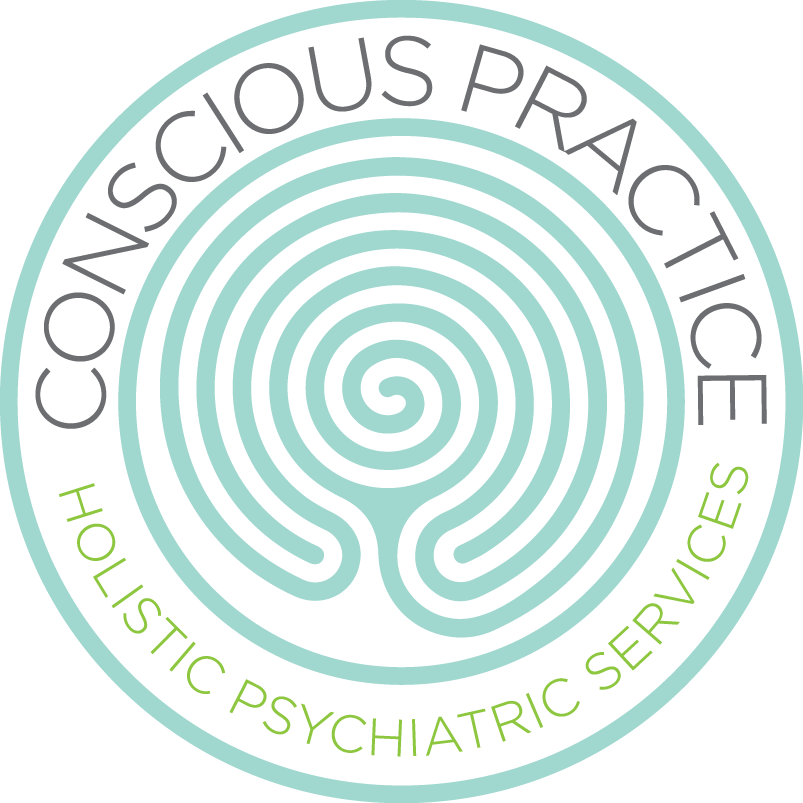One of the most important aspects of my work at Conscious Practice is promoting bodily autonomy. This value underlies all my actions and interactions with clients.
Autonomy is the state of being free, self-directed, and independent in our choice and action. Rather than a right given to you by some outside entity, bodily autonomy is simply a truth acknowledged.
The truth is, you alone have power over your own body. This includes your freedom to choose what you do with your body, what you put into it, what words you use to describe it, how you choose to dress or decorate it, and so on.
Unfortunately, there are many institutions that violate this power we all have. From industrial waste polluting our land and water, commercial agriculture depleting minerals in the soil that grows our food, violent punishment for moving beyond a rigid gender binary, legislated restrictions on reproductive health choices, the medicalization of birth and death, and the intersections of psychiatry and incarceration, many forces limit our autonomy by limiting our choices in a real, material way.
So many social, economic, and political influences leave us feeling quite disempowered. In the birth world, I hear this all too often when I hear a woman stating that their provider “wouldn’t let them” give birth to their baby in a certain position or that they “wouldn’t let them” go past 40 weeks or some other arbitrary restrictions. What’s wrong with this picture? And how does mental health fit in?
In psychiatry, I have heard countless stories from clients who were bullied into taking medication that they did not feel comfortable with, who were prescribed something without any explanation or rationale given, who were pressured to engage in therapy they did not want, or who were ignored when they brought up unpleasant side effects. I have also heard accounts of too many clients who felt they could not be real with their practitioners for fear that they would call the police or hospitalize them. Some sadly had that fear realized–when they were in crisis, clinicians had them incarcerated, thus amplifying their crisis and trauma. Trust completely shattered, these clients learned to police themselves around psychiatric providers rather than risk being locked up again.
As we look at the way bodily autonomy can be threatened in the field of psychiatry, we will also explore antidotes to those threats with the intention. If it’s ever a need for you, I hope you will be empowered to seek mental health care that wholeheartedly affirms your autonomy.
How Do I Know If My Autonomy Is Being Respected?
A clinician who respects your bodily autonomy would never pressure you to engage in treatment from the get go. They also would never pressure you to engage in a particular treatment. You would never feel like you are being pressured to focus on a topic that you are not ready to do. They would never speak to someone in your family or community about you. You would not feel threatened like if you make a certain choice or say the wrong thing, your clinician will “turn you in” to another authority. They would never police, judge, or patronize you. You would never feel like the clinician has an agenda, that they (subtly or overtly) want to influence you to do one thing or another.
Instead, you feel heard. From the first point of contact with a practitioner, you are genuinely invited to voice your goals, desires, and priorities. You are treated like an equal partner in the treatment planning process–treated that way because it is true. You are offered options, including the option to do nothing or to find another clinician that better matches your needs. You are encouraged to enlist your intuition when determining what action to take. You are freely seeking support and know that you can exit the therapeutic relationship at any time. You feel confident that whatever comes up in each session is kept confidential, and your privacy and trust are kept sacred. You are invited to create a working plan for how you would like to respond and be responded to if you find yourself in crisis–a crisis plan that does not rely on knee-jerk carceral interventions like calling the police or involuntary hospitalization. You know you can speak freely about your thoughts and feelings. You feel genuinely safe and accepted. If you are prescribed medication, your clinician offers an open invitation to share what you notice about the effects, both the therapeutic and unwelcome, the pleasant and unpleasant. You are always left feeling like you are the expert on you.
Conscious Practice exists as a sanctuary for those seeking mental health care that does not rely on the norms of limiting bodily autonomy. Rather, I strive to help clients remember their own power. Where psychiatry has historically played a role in too often limiting people’s freedom and diminishing people’s sense of self efficacy over their own lives, my job is to respect your autonomy, regardless of any disempowering messages you may have received prior to our meeting.
Since its creation, much of the work I do at Conscious Practice is repairing the relationship clients have with psychiatry. From more ubiquitous condescension to explicit betrayal, psychiatric providers can cause a lot of harm if we do not continually remind ourselves of the reality of our clients’ bodily autonomy. No clinician is perfect. I’m definitely not! But maintaining an attitude of curiosity and humility, I question the norms that limit client’s autonomy. Bodily autonomy is paramount to a trusting therapeutic relationship and must be central to our practice in psychiatry if we hope to be a space of potential healing and growth.

